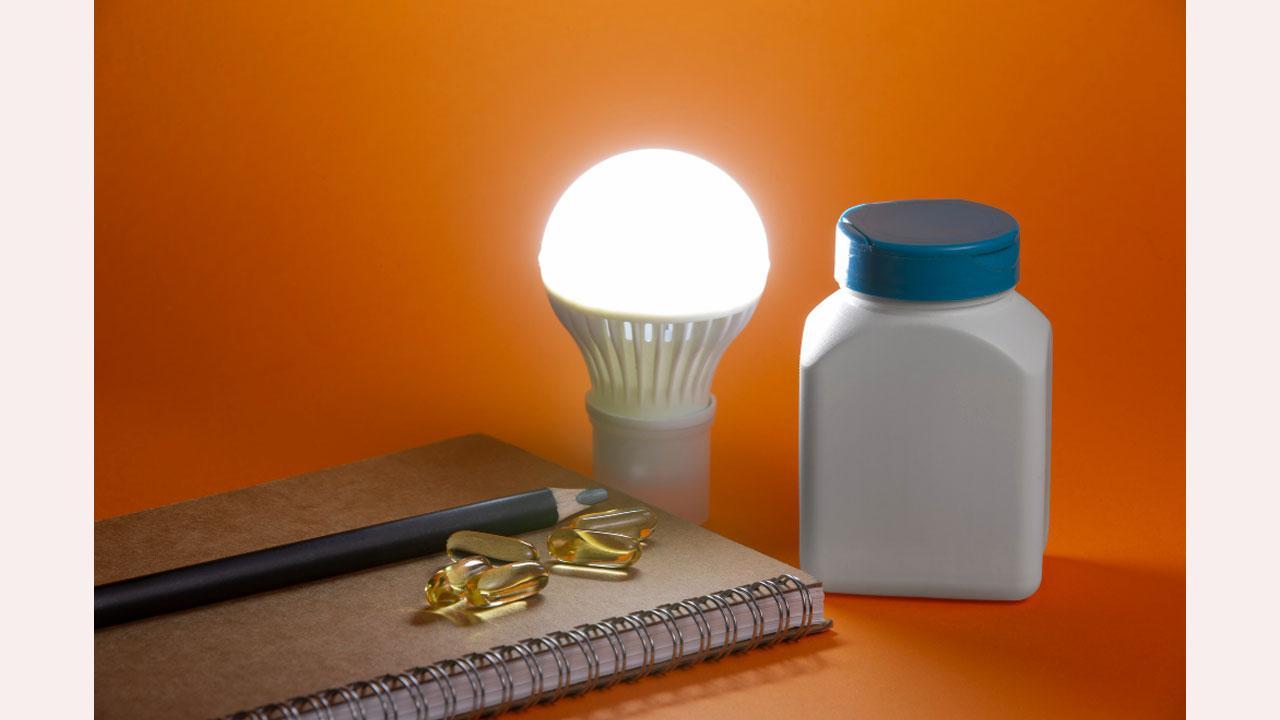Discover the difference between a smart bulb and an LED bulb. Learn which lighting option suits your home for better efficiency and convenience

Smart Bulb vs LED Bulb
Lighting plays a crucial role in enhancing the ambience of any home. Over the years, bulbs have evolved from traditional incandescent options to more energy-efficient choices like LED bulbs and smart bulbs.
ADVERTISEMENT
While both offer significant benefits in brightness, energy efficiency, and longevity, they differ in how they function and the level of control they offer.
If you're considering upgrading your home lighting, understanding the differences between smart and LED bulbs can help you make an informed decision.
What are LED Bulbs?
LED (light-emitting diode) bulbs have become one of the most popular lighting choices due to their energy efficiency and long lifespan. Unlike traditional incandescent or CFL bulbs, LED bulbs use semiconductor technology to produce light, which makes them highly efficient. They convert most of their electricity into light rather than heat, reducing energy wastage.
LED bulbs are known for their durability and low maintenance requirements. They can last between 15,000 to 50,000 hours, depending on the quality and usage. Another key advantage of LED bulbs is their versatility. They come in various shapes, sizes, and colour temperatures. That enables homeowners to create the preferred mood in any room. Warm white LEDs build a relaxing environment, while daylight or cool white LEDs best suit task lighting in kitchens and study areas.
In addition to their energy-saving benefits, LED bulbs are also environmentally friendly. They don't contain hazardous materials like mercury, making them safer to dispose of than CFL bulbs. Furthermore, they light up instantly without any flickering, providing immediate brightness.
However, LED bulbs are primarily manual in operation. They are controlled by traditional wall switches, meaning you must physically turn them on and off. While some LED bulbs have dimming features, you'll need a compatible dimmer switch to adjust the brightness.
What are Smart Bulbs?
These bulbs are essentially LED bulbs with added smart technology. They offer the same energy efficiency and longevity as regular LED bulbs but have additional features that allow you to control them remotely.
Smart bulbs are designed to connect through Bluetooth or to your home's Wi-Fi network, enabling you to control them using a smartphone app or a smart home assistant like Alexa or Google Home.
One of the standout features of smart bulbs is their ability to change colour and brightness levels. With just a few taps on your phone, you can adjust the lighting to suit your mood or activity.
Smart bulbs also offer scheduling and automation options. You can program them to turn on or off at specific times, which can help save energy and enhance home security when you're away. Some advanced smart bulbs have motion-sensing capabilities, automatically lighting up when someone enters a room and turning off when the room is empty.
Voice control is another major advantage of smart bulbs. Smart bulbs are also compatible with other smart home devices. You can sync them with smart plugs, thermostats, and even home security systems to create an automated home environment.
However, smart bulbs require a stable Wi-Fi or Bluetooth connection to function correctly, and any network issues can disrupt their performance.
Differences Between Smart Bulbs and LED Bulbs
While both smart bulbs and LED bulbs offer energy efficiency and long lifespans, the key difference lies in the level of control and customisation they provide. LED bulbs are straightforward and reliable, perfect for those who prefer a simple, no-fuss lighting solution.
On the other hand, smart bulbs are ideal for those who want more control over their home's lighting. The ability to change colours, adjust brightness remotely, and schedule lighting makes them a versatile choice for modern homes. If you enjoy creating specific moods or automating your home environment, smart bulbs offer flexibility.
Cost is another differentiating factor. Smart bulbs are generally more expensive than standard LED bulbs due to the added technology. While LED bulbs are relatively affordable and widely available, smart bulbs require an initial investment.
Which One Should You Choose?
The decision between smart and LED bulbs depends on your lighting needs and budget. LED bulbs are an excellent choice if you're looking for a simple, energy-efficient, low-maintenance lighting solution. They are reliable, affordable, and available in various styles to match room aesthetics.
However, smart bulbs are better if you value convenience, customisation, and smart home integration. The ability to adjust lighting remotely, create schedules, and sync with other smart devices makes them a practical and modern solution.
For many homeowners, a combination of both types may work best.
Final Thoughts
Both smart bulbs and LED bulbs have their advantages, and understanding the differences can help you make the right choice for your home. LED bulbs offer simplicity, energy efficiency, and long-lasting performance, making them a reliable and cost-effective option.
Smart bulbs, with their advanced features and remote control capabilities, provide the added convenience and customisation that modern living demands. By evaluating your lighting needs and budget, you can create the perfect balance of functionality and style in your home.
 Subscribe today by clicking the link and stay updated with the latest news!" Click here!
Subscribe today by clicking the link and stay updated with the latest news!" Click here!








